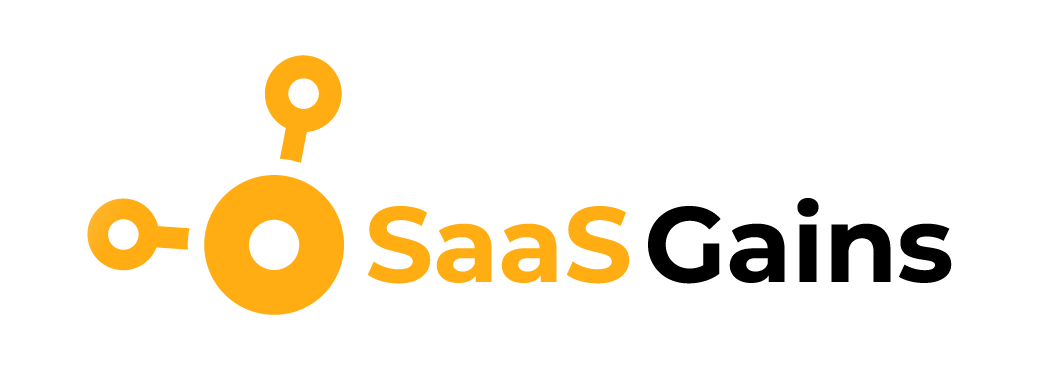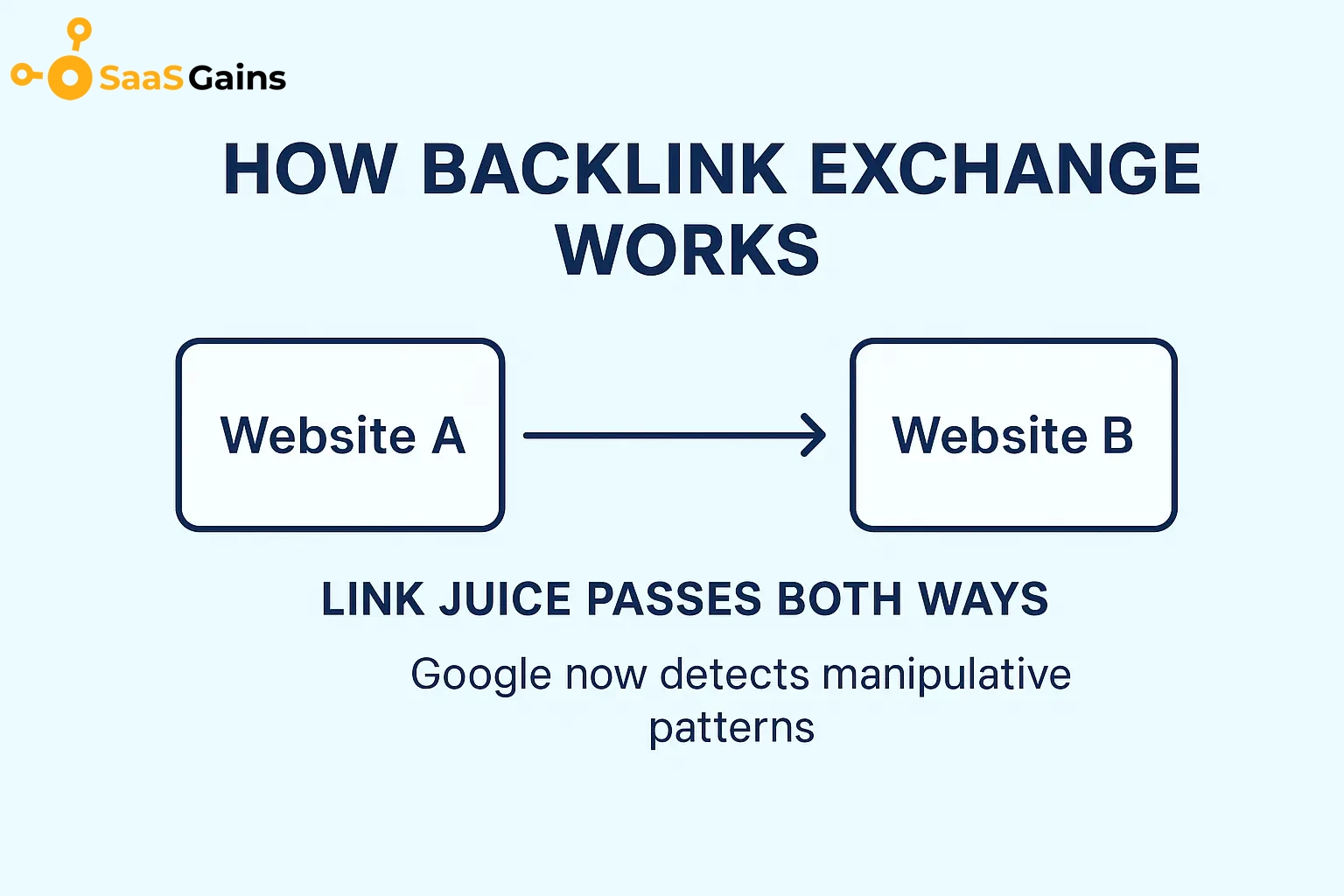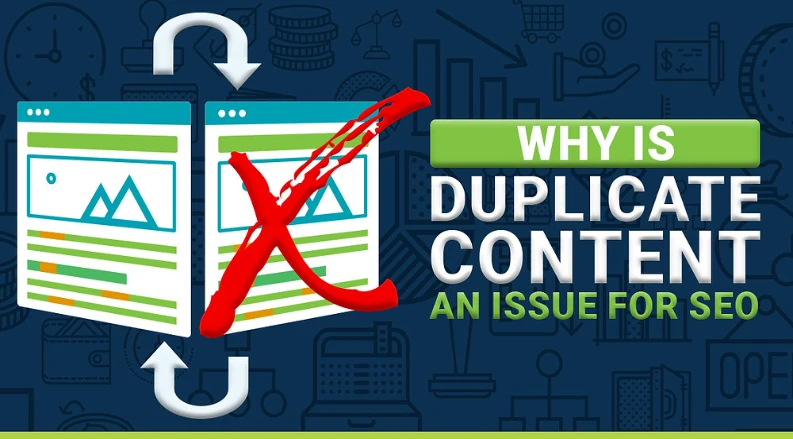Link farming is a black hat SEO strategy where a content provider builds lots of interrelated low quality websites, in order to play with the search engine results.
In the early 2000s, websites figured out they could boost their rankings by trading or buying lots of links, even without providing any real value. As a result, link farms networks of subpar websites created specifically for link exchanges grew quickly.
However, this technique stopped when Google introduced its Panda and Penguin updates.
- Panda was introduced in 2011 which focuses on the quality of content.
- Penguin came in 2012 with a focus on link farming and other manipulative link building techniques.
In this article, you will find a complete understanding of this black hat technique and solutions to get an SEO boost in an organic method.
6 Ways to Identify Link Farms

Spotting a link farm can help protect your website’s SEO and reputation. Below are six key signs that can help you quickly identify if a site is part of a link farm.
1) Excessive Outbound Links
An abnormally high number of outbound connections is a warning sign for link farms. These websites are designed to connect to as many other websites as they can, frequently without consideration for their quality or relevancy.
A website is probably a part of a link farm if it has an excessive amount of links leading to other websites, particularly ones that don’t seem to be related to its content.
You can avoid associating with low-quality link insertion by using tools like Ahrefs to examine the number of outbound connections a website has.
2) Irrelevant and Poorly Written Content
Link farm sites usually don’t focus on providing valuable content. Instead, they churn out low-quality, irrelevant posts designed solely to host backlinks. These sites often lack depth, research, or purpose in their content.
You might notice repetitive or generic articles that provide little to no useful information for readers. Content that appears to have been created quickly or is overflowing with keywords rather than being educational may indicate that the website is a link farm.
Note: Always give preference to websites with original, thoroughly researched information.
3) Spammy Domain Names
 Websites involved in link farming often use spammy or strange domain names filled with irrelevant keywords. These domain names might not relate to the website’s supposed purpose and are created to take advantage of SEO loopholes.
Websites involved in link farming often use spammy or strange domain names filled with irrelevant keywords. These domain names might not relate to the website’s supposed purpose and are created to take advantage of SEO loopholes.
For instance, if you see domains packed with keywords like “best-cheap-seo-services-online-now.com,” it’s likely a link farm. Such domain names are a tactic to manipulate search engines and should be avoided. Trustworthy sites typically have clear, professional, and relevant domain names that align with their content.
4) Common Backlinks
A link farm will often have many websites linking back to the same group of sites repeatedly, forming a web of reciprocal links. This unnatural pattern makes it easy to identify link farms, as the backlinks don’t come from genuine recommendations or organic content sharing.
If you notice that multiple sites are pointing to the same links in an orchestrated manner, it’s a sign of a link farm. Genuine backlinks are diverse and come from different sources over time.
5) Anonymous Authors
Another sign of a link farm is the use of anonymous authors. You’ll often see posts credited to “admin,” “guest author,” or names with no real identity behind them. Genuine websites usually list credible authors with verifiable profiles or links to their social media accounts.
Link farms, however, avoid using identifiable writers to maintain anonymity and avoid accountability. Always check if a website provides proper author credentials, as this is a good indicator of content legitimacy.
6) A Template Design
Most link farms don’t invest in unique website designs. They tend to use generic templates with minimal customization, making the sites look similar to one another. These templates are often plain, with little attention to user experience or branding.
Authentic websites usually have personalized designs that reflect their brand’s identity and improve the overall user experience. If you notice several sites with the same basic layout and little variation in structure, they might be part of a link farm network.
Does Google “Hate” Link Farming?
Google strongly discourages link farming. Google’s algorithms are designed to identify and penalize such anomalous activity. Actually, Google Penguin and subsequent updates target link farms and other deceptive link-building tactics.
If Google discovers link farms, it may punish a website by reducing its search engine rankings or perhaps de-indexing it entirely. Because of this, businesses should avoid link farming if they want to maintain their online reputation and keep seeing organic SEO development.
Why Do Link Farms Possess High Domain Authority (DA)?
Link farms can possess high Domain Authority (DA) for a few reasons. First, some link farms are built on expired domains that already had a strong backlink profile and high DA before turning into a link farm.
Others are part of private blog networks (PBNs) that artificially boost DA by creating numerous interconnected links. While these practices might give the appearance of authority, they rely on quantity rather than quality.
It’s important to keep in mind that DA is basically a tool and is subject to manipulation. However, Google values relevant, high-quality connections more than backlink volume.
How to Avoid Link Farming Completely?
If you want to avoid link farming make sure to familiarize yourself with the strategies discussed below.
1. Conduct Thorough backlinks audit
The first step in avoiding link farming is to check your backlinks on a regular basis. You can find potentially risky links that can originate from link farms by looking at the backlink profile of your website.
Download your backlink data using tools such as Google Search Console, then check each link for relevancy and quality. Search for links from unrelated domains or low-quality websites, as these may indicate dubious relationships that undermine your SEO efforts.
2. Use SEO Tools for Backlink Analysis
Maintaining an authentic profile requires using trustworthy SEO tools for backlink research. You may assess your backlinks using tools like Ahrefs, Moz, and SEMrush by looking at their domain authority, spam score, and relevancy.
By highlighting links from suspicious websites, these tools assist you in identifying any possible link farm activity. You can decide which links to maintain and which to disavow by conducting a thorough examination.
3. Focus on Organic Link Building
One of the safest and most efficient methods to increase your backlink profile is through organic link creation. You will naturally get high-quality connections from reliable websites if you produce content that is valuable and shareable.
Social media promotion, influencer collaborations, and guest blogging are all great ways to build organic backlinks. This strategy guarantees that search engines will continue to find your link profile to be clear, pertinent, and reliable.
4. Disavow Links from Known Link Farms
It’s imperative to disavow connections from known link farms if you find them throughout your audit. By disavowing damaging links, you instruct search engines to disregard them when determining the ranking of your website.
Your website won’t be punished for linking to low-quality websites thanks to this procedure. Links that potentially harm your SEO are easy to control and eliminate using tools like Google’s Disavow Tool.
5. Submit a Disavow File to Search Engines
Once problematic backlinks have been found and disavowed, send a disavow file to search engines such as Google. A list of URLs or domains that you would like search engines to overlook is included in this file.
By submitting it, you guarantee that the ranking of your website will no longer be impacted by these links. It’s a proactive strategy to keep your backlink profile clean and avoid penalties brought on by inadvertent link farm affiliations.
Why Should You Avoid Farm Linking?
Link farming might seem like a shortcut to boost your site’s rankings, but it comes with significant risks that can harm your SEO efforts in the long run. Here’s why you should stay away from link farming.
1) Link Farming Invite Penalties
Search engines like Google have strict rules against link farming. Their advanced algorithms can easily detect unnatural link-building activities, such as excessive backlinks from low-quality sites.
When caught, your website could face penalties, including lower search rankings or even complete removal from search engine indexes. Recovering from such penalties is time-consuming and challenging, making link farming a risky choice for SEO.
2) You Cannot Trust Link Farm Sites
Link farm sites are unreliable. Even if a site initially boosts your ranking, it may be penalized or shut down without notice. Even worse, some websites could take down your connections quickly, costing you money and backlinks. These websites are a bad investment for your SEO strategy because of their unpredictability, which means there is no long-term certainty.
3. Your Website Reputation can Suffer
Being linked to link farms might harm the reputation of your website. These days, users and search engines are increasingly intelligent, and connecting to unrelated, subpar websites might damage your brand’s reputation.
This can hurt your reputation in the long run by decreasing user engagement and traffic. The key to maintaining the authority and credibility of your website is keeping your backlink profile clean.
4) Link Farms Site Attracts Poor Traffic Quality
Although link farms may produce backlinks, the traffic they draw is frequently of poor quality. These websites’ visitors usually don’t care much about your offerings, which leads to high bounce rates and brief site visits. The performance and metrics of your website may suffer as a result of this low-quality traffic since it doesn’t result in conversions or meaningful interactions.
What are the Alternatives to Link Farming for Improving SEO?
Instead of using risky tactics like link farming, there are better and safer ways to boost your SEO. These methods focus on creating real value and earning backlinks naturally.
1. Creating High-Quality Content
Good content is the cornerstone of successful SEO. Search engines reward websites with original, useful, and instructive content. If you focus on producing blogs, articles, or other content that benefits your audience, people will want to share and link to your work. This helps you get backlinks from trustworthy websites and builds reader trust, both of which eventually improve your SEO.
2. Develop Content that Addresses User Needs
It’s critical to understand what your audience wants in order to generate organic traffic and genuine backlinks. They view your website as a useful resource when you produce information that responds to their queries or resolved their issues. This type of content is more likely to be shared and may get links from other reliable websites, which improves your SEO.
3. Building Relationships for Legitimate Backlinks
Building real connections in your industry can help you get genuine backlinks. Work with trustworthy websites, bloggers, or businesses that relate to your field. These relationships can lead to guest posts, collaborations, or mentions in their articles. This way, you can grow your SEO naturally while creating long-lasting partnerships that benefit both sides.
Conclusions
Link farming is a dangerous SEO tactic that may backfire. Although it could appear to be a quick fix to raise rankings, it invites fines, harms the reputation of your website, and draws in low-quality traffic.
Therefore, concentrate on creating real backlinks through relationship-building, producing high-quality content, and adhering to SEO best practices rather than using deceptive methods. Without the dangers of link farming, this strategy guarantees long-term SEO success.




